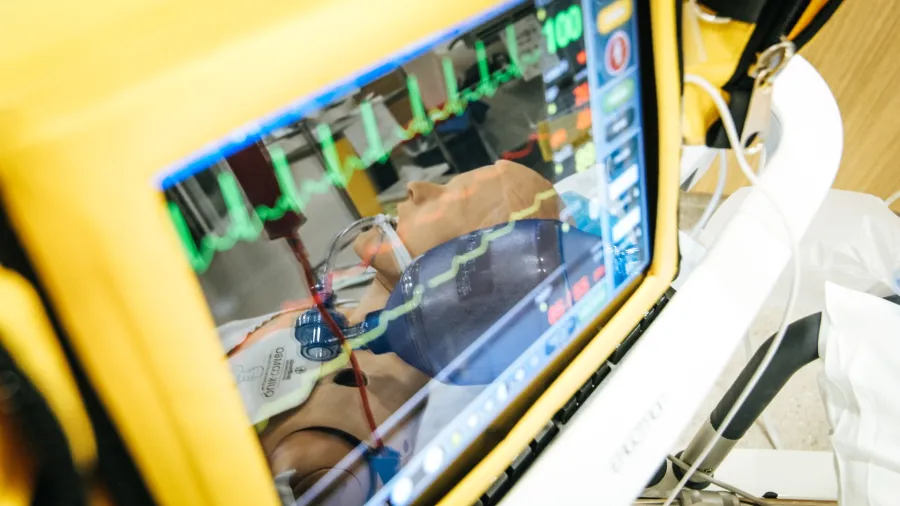
Singapore hospital touts use of AI-powered stroke imaging tool
RapidAI can process imaging data in one minute, much faster than a 20-minute manual scan
Singapore’s National University Hospital (NUH) has started using a neuroimaging software powered by artificial intelligence (AI) to help doctors expedite treatment of ischemic stroke.
Dubbed RapidAI, the AI-based solution allows for early identification of stroke patients by processing the computerized tomography (CT) scans of suspected stroke patients in less than a minute, reducing the waiting time from up to 20 minutes if analyzed manually.
It sends the medical team color-coded images with relevant quantitative information detailing the extent of brain damage a patient has suffered and the volume at risk that can potentially be saved with mechanical thrombectomy, which removes blood clots from the brain after an ischemic stroke.
“AI has the potential to completely change the speed at which therapeutic decisions are made, thereby reducing the amount of brain cells lost and improving the likelihood of a stroke patient walking out of the hospital,” said Anil Gopinathan, head and senior consultant at NUH’s diagnostic imaging department.
Each minute of delay in opening a blocked artery could result in patients losing 1.9 million brain cells, making it crucial to identify the proper treatment fast to help avoid severe brain damage that may result in paralysis and loss of speech and cognitive functions.
NUH was the first hospital to use RapidAI for stroke care in Singapore. The AI tool has been already adopted in other parts of Asia like Hong Kong, Taiwan and India as well as in America and Europe.



















 Advertise
Advertise







